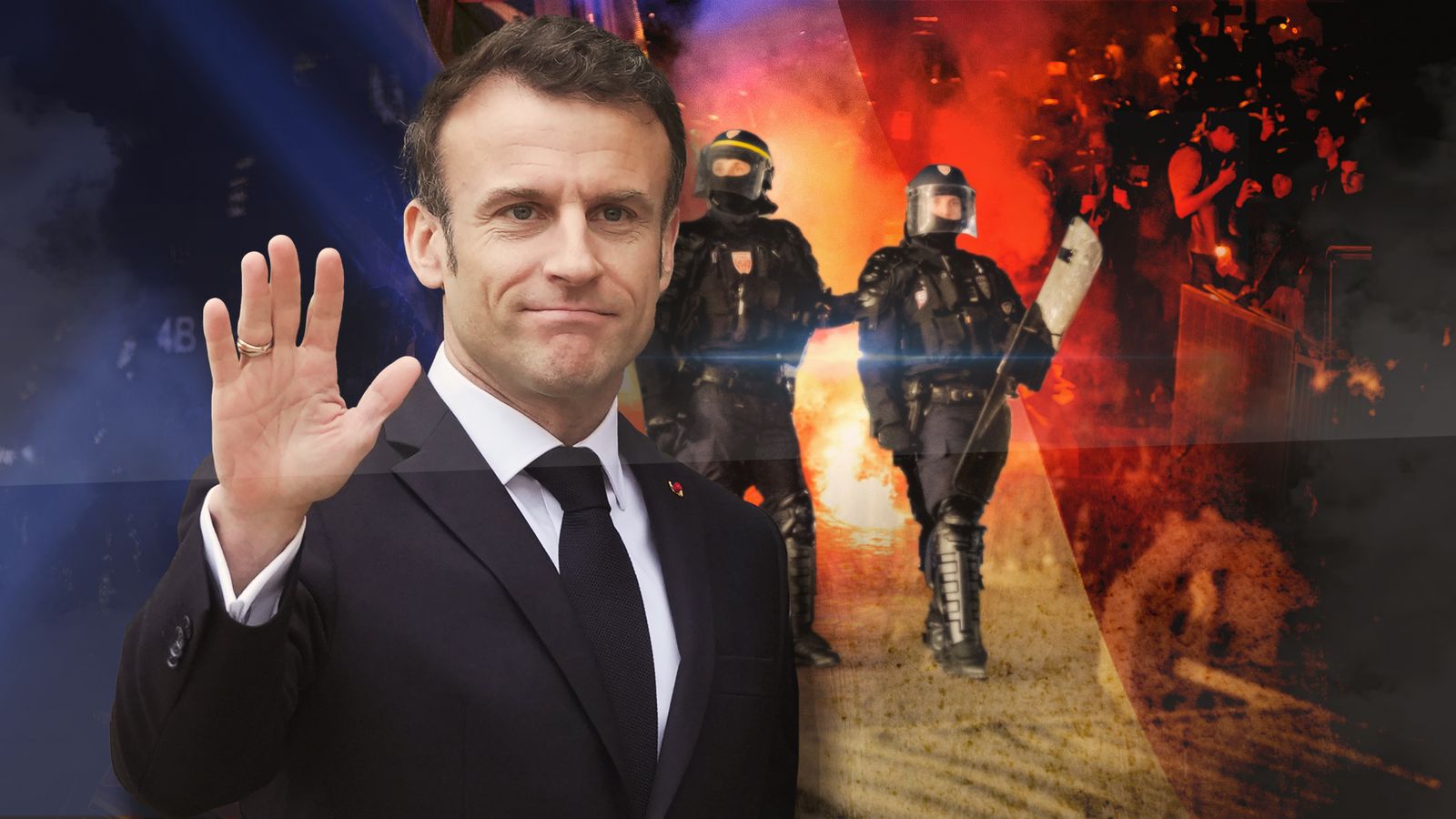Even on a grey, drizzly day, the town hall of the third arrondissement in Paris is a fine building.
Built in the 1860s, it sits in the heart of a busy district. And as we visit, it is bustling.
Yes, there are people here to talk about parking permits or bus timetables. But go up the stairs and you find the real reason that the town hall is so busy – the vaccination centre.
We are invited to walk in and watch. A couple of dozen locals are sitting down, either waiting to have their vaccine or else pausing after a jab to ensure they don’t have a reaction.
Along the far side of the room are cubicles, hidden behind partitions and curtains, in which doctors administer the doses. It is a familiar sight to many people, but in France, it comes loaded with questions.
As we visited, the nation was waiting to see if the AstraZeneca vaccine would be certified as safe by the European Medicines Agency. In the end it was – but still, this is a product whose reputation has been bruised.
Muriel Elkaim was among the visitors. A few days ago, she was given the AstraZeneca vaccine and has no regrets. “Thanks to this vaccine, I have a little bit of Britain inside me,” she said.
But her enthusiasm has led to a family row, which perhaps illustrates the tension that swirls around this vaccine.
“I have a twin, who was supposed to come with me to have the first vaccine of AstraZeneca”, she said. “But then he said to me ‘I don’t want to have it, I want Pfizer because AstraZeneca is not clean’.”
“But I think he is wrong. I think that the benefit of AstraZeneca is better than the risk, because the number of cases of thrombosis is very little and if I had thrombosis, I prefer that than dying with COVID-19.
“I want to kiss my children and my grandchildren, I want to kiss my mother and I want to live.”
There is, famously, scepticism about vaccines here, and also cynicism about the government. But when I visited Martin Blachier, a public health expert, he smiled when I asked him about the danger that the French will reject vaccination.
“This is what we are like – we criticise and complain about everything but then, in the end, we do it,” he said. “I think people will forget about the questions over the AstraZeneca vaccine in the end. People will go to the vaccine, because they realise it’s the only option.”
The problem, he said, is not actually scepticism, but a shortfall in the number of doses. If France, and by extension Europe, had procured more vaccine doses up to this point then he is adamant that a much higher percentage of people would have been protected by now.
“It’s very frustrating because we could have almost finished the pandemic if we had had more doses.
“There’s been a lot of confusion, a lot of tension. We see the UK, the US and Israel all trying hard to get out of the crisis, but we are still blocked. We’re not in the top countries to get out of the crisis first. It creates a kind of frustration and shame.”
France, like the rest of Europe, is slowly finding some momentum for its vaccination programme, but it comes against a backdrop of a rapid rise in infection rates in some areas.
The government has imposed new, tough restrictions in 16 departments, including Paris. It’s not quite a return to full-blown lockdown, but it is a miserable echo of the low points of the past year.
There is a curfew in place in Paris at the moment, and people are supposed to stay at home. Last year, under similar rules, the streets were almost empty. But now they are busy with cars, if not pedestrians, during the evening. What’s clear is that even if they’re staying out of sight, lots of people are moving around Paris to socialise.
The truth is that people here are fed up with the rules and, it seems, the authorities aren’t particularly keen to enforce them.
Like so many other places in Europe, France desperately needs to accelerate its sluggish vaccine rollout, not just to save lives and protect health, but also to give its society the sight of a route back to normality.





